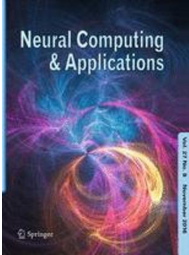Special Issues
Several special issues will be connected to IDC2020. The list here will be frequently updated.
- Journal of Neural Computing and Applications - Special issue on Effective and Efficient Deep Learning based Solutions

OVERVIEW: This Special Issue on Effective and Efficient Deep Learning based Solutions seeks for publications presenting new and extended applications of Deep Learning with a special focus on effectiveness and efficiency. Deep Learning has received a lot of attention in the past two decades. Although references to deep models appeared years before, it is in this century that the computational resources have allowed to use these models to solve very complex tasks. This process has not stopped. New advances are continuously presented to address even more complicated and challenging undertakings. However, the size and sophistication of recent models and tasks is constantly growing.
In this Special Issue we put the focus on two fundamental characteristics necessary to extend and improve the use of Deep Learning architectures. On the one hand, we look forward for research addressing the efficiency of the models: novel paradigms and approaches to tackle computational resources restrictions limiting the application of these architectures. On the other hand, we also pursue research targeting the effectiveness of these architectures: novel and extended applications of Deep Learning going one step further and enabling to solve problems with robust performance.
- MDPI Electronics - Special issue on Emerging Internet of Things Solutions and Technologies

OVERVIEW: The Internet of Things, together with its related emerging solutions and technologies, is driving a revolution with respect to the way people perceive and interact with the surrounding environment. Smart homes, smart offices, and smart factories are effective examples of daily life environments that, enriched with sensing, actuating, communication, and computing capabilities, are able to offer advanced services and applications. In this context, multiple advantages can be achieved. Among these, valuable benefits include improving the quality of life of people, increasing the efficiency of systems and plants, enriching the sustainability of buildings, enhancing the performance and usability of the offered services, and making technological solutions affordable to everyone and available everywhere. Further added value can be achieved by carefully combining the above benefits.
The full potential of the emerging Internet of Things paradigm needs a large amount of industrial and academic research efforts directed to the design, development, and assessment of novel architectures, methodologies, solutions, and technologies. Novelties in this field include, but are not limited to, the integration of consciousness and awareness in the Internet of Things, the adoption of machine learning and artificial intelligence, the exploitation of the edge and fog computing paradigms, the development of new standards and protocols, and the use of the digital twin concept to integrate physical and cyber worlds.
This Special Issue aims to involve both academic and industrial communities that operate in the fields of computer science, electronics, control systems, and telecommunications and that intend to offer their contributions in the abovementioned topics, thus advancing Internet of Things solutions and technologies.
- MDPI Big Data and Cognitive Computing - Special issue on "Big Data and Cognitive Computing: Feature Papers 2020"

OVERVIEW: Cognitive computing allows reducing the complexity of Big Data to help humans in decision making within the vast and growing seas of Internet of Things. This Special Issue will include high-quality papers (original research articles or comprehensive review papers) in open access format, by the Editorial Board Members, or those invited by the Editorial Board Members and the Editorial Office. Papers will be published, free of charge, after peer review. The scope of “Big Data and Cognitive Computing” includes but is not limited to the following topics:
Big data, Clouds, Edge, and Internet of Things (IoT)
- Data storage and management
- Data search and mining
- Big data infrastructure and systems
- Big data processing and analytics
- Big data applications in science, internet, finance, telecommunications, business, medicine, healthcare, government, transportation, industry, manufacture, etc.
- Big data integrity and privacy
- Big data models, algorithms, and architectures
- Cloud computing and big data platform
- Cloud services and big data applications
- Edge computing and IoT data mining
- IoT technologies for big data collections
- IoT sensing and cognitive IoT
- Data-driven IoT intelligent applications
- 5G network and wireless big data
Cognitive computing
- Machine learning and its applications in medicine, biology, industry, manufacturing, security, education, etc.
- Deep learning
- Artificial intelligence
- Affect/emotion/personality/mind computing
- Cognitive modeling
- Cognitive informatics
- Cognitive sensor-networks
- Cognitive robots
- Application of cognitive computing in health monitoring, intelligent control systems, bioinformatics, smart manufacturing, smart grids, image/video and signal processing, etc.
- Robots and control systems
- Natural language processing
- Human–machine/robot interaction.